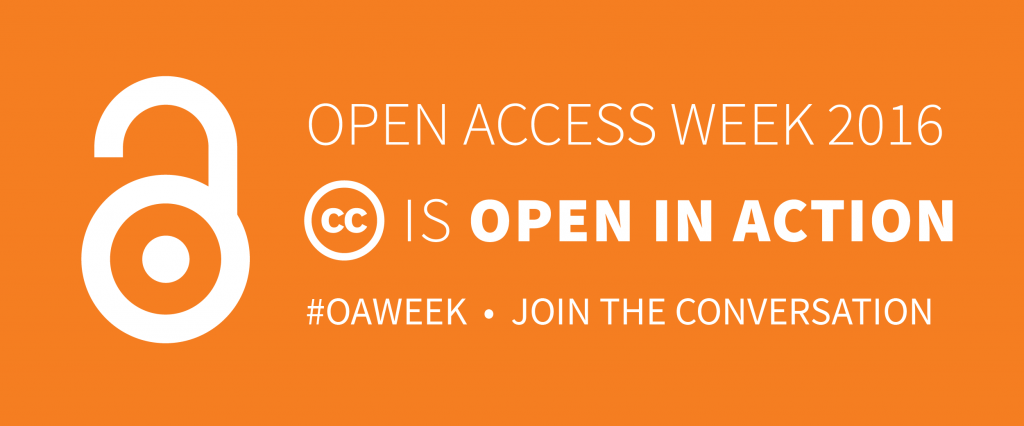Search
Why Sharing Academic Publications Under “No Derivatives” Licenses is Misguided
by Brigitte Vézina Licenses & Tools, Open Education post
The benefits of open access (OA) are undeniable and increasingly evident across all academic disciplines and scientific research: making academic publications1 freely and openly accessible and reusable provides broad visibility for authors, a better return on investment for funders, and greater access to knowledge for other researchers and the general public. And yet, despite OA’s obvious…
Open Access Policy In Practice: A Perspective from the Wellcome Trust
by Timothy Vollmer Open Access post
It’s Open Access Week 2016. Open Access Week is an annual week-long event that highlights the importance of sharing scientific and scholarly research and data. Its goal is to educate people on the benefits of open publishing, advocate for changes to policy and practice, and build a community to collaborate on these issues. This year’s…
CC goes to #Mozfest 2014
by Ryan Merkley Uncategorized postCreative Commons staff, affiliates, and supporters were active participants and contributors at this year’s Mozilla Festival, which has become an annual rallying point for the Open Web and our shared values. Our sessions covered a wide range of issues, from new technology, to open education and science, to working as an open organization. Thanks to…
Clarifications about CC BY in the UK Open Access Policy
by Timothy Vollmer Uncategorized postIn the UK, the House of Commons has asked for feedback on their Open Access Policy. One provision of that policy requires that articles funded through the Research Councils UK (RCUK) must be released under a CC BY license. Last year, CC submitted a short comment in support. And just last month, the House of…
PlagarismToday on Why You Shouldn't Write Your Own License
by fbenenson Uncategorized postJonathan Bailey at PlagiarismToday has a great post dissecting the various issues raised by the bizarre “WE ARE COPYRIGHTED BLOGS” license he recently came across. Jonathan correctly recommends that you leave it to the professionals (Creative Commons is a good example 🙂 to draft your copyright licenses: This license displays some of the many hazards…
University of Michigan Library
by cameron Open Education postOver the past year, the University of Michigan Library has shown itself to be particularly sensible in regards to open content licensing, the public domain, and issues of copyright in the digital age. The U-M Library has integrated public domain book machines, adopted CC licensing for their content, and independently had their Copyright Specialist, Molly…
Public Library of Science
by glenn Open Culture postThe Public Library of Science is a nonprofit organization dedicated to making the world’s scientific and medical literature a freely available public resource. PLoS emerged in October 2000 through the effort of three dynamic and highly respected scientists: Nobel Laureate and former head of the National Institutes of Health Harold Varmus, molecular biologist Pat Brown…